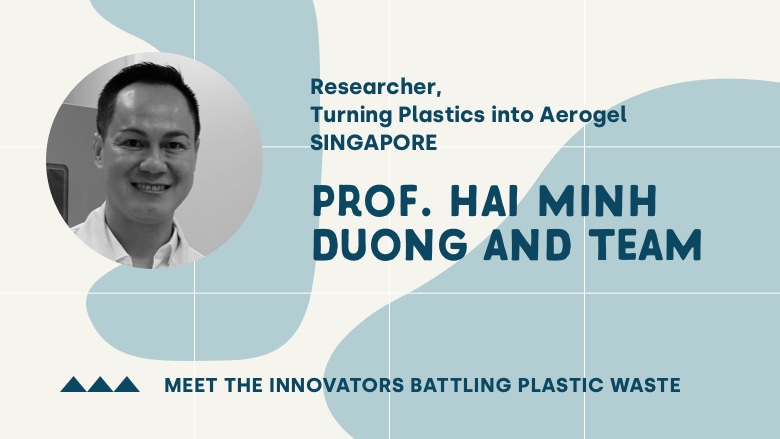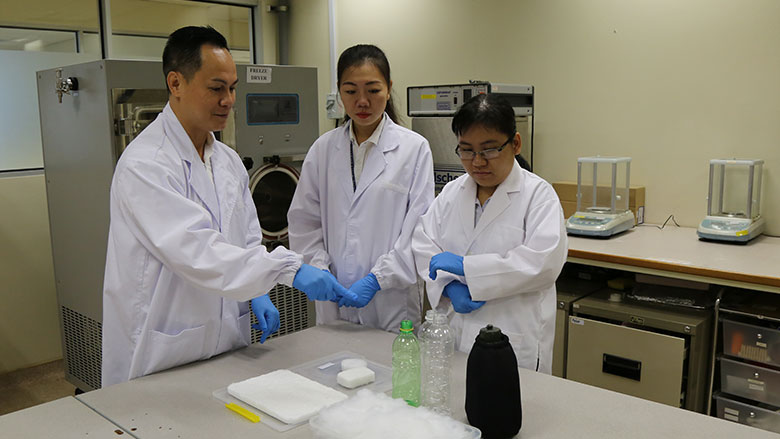Tell us about yourself, and your project.
My name is Hai Minh Duong. I’m an Associate Professor at the Faculty of Engineering, National University of Singapore (NUS) and I’ve been researching engineering applications of lightweight materials since I received my Ph.D. in 2004.
My team at NUS developed Polyethylene terephthalate (PET) aerogels, converted from plastic bottle wastes. Aerogels are the lightest and most porous materials on earth and have existed since the 1930s.
The PET aerogel is the strongest and “sexiest” version of aerogels. It helps address the plastic waste problem we are facing today and has many real-life applications that can benefit everyone. These applications include heat and sound insulation, CO2 and dust particle filtering, personal care such as diapers, medical devices and oil and non-polar liquid absorption. There were more than 1,600 oil spills on Singapore’s roads in 2015. Our aerogels are four times more effective than commercial products in terms of absorbing oil spills and are a potential solution to speed up the cleaning process and reduce costs. After they are finished absorbing oil spills, you can squeeze the oil out and reuse them!
Is there any concern with this new material?
People say at the end of the day, PET aerogel is still PET. But PET bottles take 500 years to degrade, while PET aerogels do so 20 times faster than that because the bottles are converted into fiber. Also, after production, we release only water into the environment. We don’t release any toxins or chemicals into the environment.
How is plastic waste an issue for oceans and waterways in Singapore?
It is reported that Singapore uses at least 1.76 billion plastic items a year – or almost one plastic item per person per day – but less than 20% of that is recycled. Research also found that Singapore uses 467 million PET bottles a year and 473 million plastic disposable items such as takeaway containers.
Globally, such plastic waste often ends up in landfills, uncontrolled dump sites, and oceans, which therefore cause problems for marine life and groundwater.




